PINEAPPLE
• The Bromelain enzyme is generally found in the stem or core of a pineapple and helps to digest food by breaking down the protein particles within it. Promoting a healthy digestive system, it’s great for a natural detox and has also been known for its anti-inflammatory and anti-clotting properties.
• Pineapple is low in calories, sodium, saturated fats and cholesterol while being a rich source of fibre, so it’s the perfect weight loss food – have a look at our healthy pineapple recipes for some tasty and nutritious snack ideas.
• An excellent source of Vitamin C and other antioxidants essential for collagen synthesis, Vitamin C also helps to maintain the integrity of your blood vessels, skin, organs and bones.
 • Increasing your daily intake of antioxidants is also great for boosting your immune system, which means you’ll be able to fight off colds and flus during winter.
• Increasing your daily intake of antioxidants is also great for boosting your immune system, which means you’ll be able to fight off colds and flus during winter.
• Pineapple is also known for its high level of manganese. The Manganese mineral is an essential element for energy production, while protecting your cells from free radicals. It helps your body use key nutrients including thiamine and biotin, keeps your bones healthy and helps synthesise fatty foods.
• Pineapple is also a rich source in Vitamin A and Beta-Carotene, which helps your immune system, eyesight and protects from free radicals; Vitamins B1 and B6 which are good for energy production and the breakdown of sugars and starches in your digestive system; copper, which helps red blood cell synthesis; and potassium, which assists in controlling the heart rate and blood pressure.
PEAR
• Blood pressure: Pears have anti-oxidant and anti-carcinogen glutathione which help prevent high blood pressure and stroke.
• Cancer prevention: The high vitamin C and copper content act as good anti-oxidants that protect cells from damages by free radicals.
• Cholesterol: The high content of pectin in pears make it very useful in helping to lower cholesterol levels.
• Colon health: When not juicing, eat the pear whole for its precious fiber that are highly beneficial for your colon health.
• Constipation: The pectin in pears is diuretic and have a mild laxative effect. Drinking pear juice regularly helps regulate bowel movements.
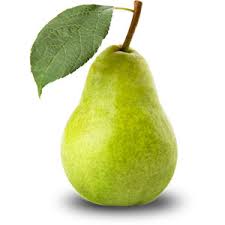 • Energy: You can get quick and natural source of energy from pear juice, due largely to its high amounts of fructose and glucose.
• Energy: You can get quick and natural source of energy from pear juice, due largely to its high amounts of fructose and glucose.
• Fever: The cooling effect in pear is excellent in relieving fever. Best way to bring a fever down quickly is by drinking a big glass of pear juice.
• Immune booster: The anti-oxidant nutrients in pears are critical in building up your immune system. Drink pear juice when you feel a cold coming.
• Inflammation: Pear juice has an anti-inflammatory effect and helps relieve sufferers of much pain in various inflammatory conditions.
• Osteoporosis: Pears contain high level of boron. Boron helps the body to retain calcium, thus prevents or retards osteoporosis.
• Pregnancy: The high content of folate (folic acid) prevents neural tube defects in infants.
• Shortness of breath: The summer heat may cause children to have shortness of breath with excessive phlegm. Drink pear juice during this period to help clear the phlegm.
• Throat problem: The pears are in season during the summer for a reason. Drinking pear juice every morning and night helps to cool your body down during this time. It nourishes the throat and helps prevent throat problems.
• Vocal chord: Boil two Chinese pear juice with some raw honey and drink warm. This is extremely healing for the throat and the vocal cord.
• Fiber: Pears are an excellent source of natural dietary fiber. One pear will give you 24% of your recommended daily allowance of fiber. Fiber contains no calories, and is a necessary element of a healthy diet as it helps sustain blood sugar levels and promotes regularity.
QUINCE
• Being rich in dietary fiber, quince is good for those people who are trying to lose weight and maintain a healthy body.
• Quince boasts of antioxidant properties, which helps the body fight against free radicals and reduces the risk of cancer.
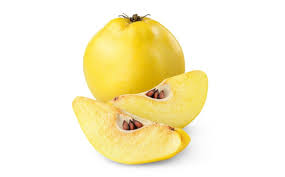 • Researches have revealed that quinces might be rich in various anti-viral properties.
• Researches have revealed that quinces might be rich in various anti-viral properties.
• Consumption of quince has been found to be beneficial for people suffering from gastric ulcer.
• Quince juice is known to have tonic, antiseptic, analeptic, astringent and diuretic properties.
• It is believed that eating quince is good for maintaining the optimum health of an individual.
• Regular consumption of quince not only aids in digestion, but also helps lower cholesterol.
• The presence of potassium in quince helps the body keep high blood pressure in check.
• The vitamin C present in quince helps reduce the risk of heart disease in individuals.
• If consumed on a regular basis, quince proves beneficial for those afflicted with tuberculosis, hepatic insufficiency, diarrhea and dysentery.
• Those suffering from liver diseases and eye diseases would surely benefit from regular quince consumption.
• Being rich in antioxidants, quince is believed to be helpful in relieving stress and attaining calm.
• Quince is low in saturated fat, cholesterol and sodium, while having lots of vitamin C, dietary fiber and copper.
• Quince juice is good for those suffering from anemia, cardiovascular diseases, respiratory illnesses, diseases of the gastrointestinal tract and even asthma.
• The juice as well as pulp of boiled or baked quince fruit serves as a good anti-emetic remedy.
STRAWBERRY
• Helps burn stored fat
The red coloring contains anthocyanins, which stimulate the burning of stored fat. When a group of animals was fed a high-fat diet along with anthocyanins, they gained 24 percent less weight than the animals eating the high-fat diet without added anthocyanins.
• Boost short term memory
The anthocyanins boost short term memory by 100 percent in eight weeks.
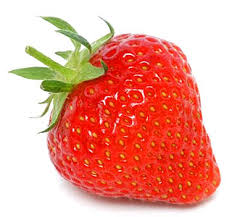 • Low in Calories – High in Fiber
• Low in Calories – High in Fiber
One cup contains only 54 calories.
• Ease Inflammation
Strawberries lower blood levels of C-reactive protein (CRP), a signal of inflammation in the body. In a study, women who ate 16 or more strawberries per week were 14 percent less likely to have elevated levels of CRP.
• Lower cardiovascular disease
Flavonoids — which are responsible for the colour and flavour of strawberries — lower the risk for heart disease.
• Promote bone health
Strawberries contain potassium, vitamin K and magnesium which are important for bone health.
• Prevent oesophageal cancer
Studies show freeze-dried strawberry powder may help prevent human oesophageal cancer.
• Anti-aging properties
Strawberries are filled with biotin, which helps build strong hair and nails. They also contain the antioxidant ellagic acid, which protects the elastic fibers in our skin to prevent sagging.
• Good for weight loss
The compound nitrate found promotes blood flow and oxygen in our body, which is great for weight loss.
• Promote eye health
Eating three or more servings of fruit like strawberries may lower the risk of macular degeneration, a condition resulting in vision loss.
APPLE
• Get whiter, healthier teeth
An apple won’t replace your toothbrush, but biting and chewing an apple stimulates the production of saliva in your mouth, reducing tooth decay by lowering the levels of bacteria.
• Avoid Alzheimer’s
A new study performed on mice shows that drinking apple juice could keep Alzheimer’s away and fight the effects of aging on the brain. Mice in the study that were fed an apple-enhanced diet showed higher levels of the neurotransmitter acetylcholine and did better in maze tests than those on a regular diet.
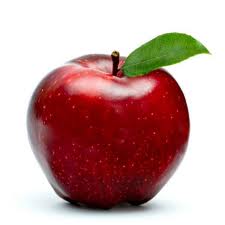 • Protect against Parkinson’s
• Protect against Parkinson’s
Research has shown that people who eat fruits and other high-fibre foods gain a certain amount of protection against Parkinson’s, a disease characterized by a breakdown of the brain’s dopamine-producing nerve cells. Scientists have linked this to the free radical-fighting power of the antioxidants contained therein.
• Curb all sorts of cancers
Scientists from the American Association for Cancer Research, among others, agree that the consumption of flavonol-rich apples could help reduce your risk of developing pancreatic cancer by up to 23 per cent. Researchers at Cornell University have identified several compounds—triterpenoids—in apple peel that have potent anti-growth activities against cancer cells in the liver, colon and breast. Their earlier research found that extracts from whole apples can reduce the number and size of mammary tumours in rats. Meanwhile, the National Cancer Institute in the U.S. has recommended a high fibre intake to reduce the risk of colorectal cancer.
• Decrease your risk of diabetes
Women who eat at least one apple a day are 28 percent less likely to develop type 2 diabetes than those who don’t eat apples. Apples are loaded with soluble fibre, the key to blunting blood sugar swings.
• Reduce cholesterol
The soluble fibre found in apples binds with fats in the intestine, which translates intolower cholesterol levels and a healthier you.
• Get a healthier heart
An extensive body of research has linked high soluble fibre intake with a slower buildup of cholesterol-rich plaque in your arteries. The phenolic compound found in apple skins also prevents the cholesterol that gets into your system from solidifying on your artery walls. When plaque builds inside your arteries, it reduces blood flow to your heart, leading to coronary artery disease.
• Prevent gallstones
Gallstones form when there’s too much cholesterol in your bile for it to remain as a liquid, so it solidifies. They are particularly prevalent in the obese. To prevent gallstones, doctors recommend a diet high in fibre to help you control your weight and cholesterol levels.
• Beat diarrhea and constipation
Whether you can’t go to the bathroom or you just can’t stop, fibre found in apples can help. Fibre can either pull water out of your colon to keep things moving along when you’re backed up, or absorb excess water from your stool to slow your bowels down.
• Neutralize irritable bowel syndrome
Irritable bowel syndrome is characterized by constipation, diarrhea, and abdominal pain and bloating. To control these symptoms doctors recommend staying away from dairy and fatty foods while including a high intake of fibre in your diet.
• Avert hemorrhoids
Hemorrhoids are a swollen vein in the anal canal and while not life threatening, these veins can be very painful. They are caused by too much pressure in the pelvic and rectal areas. Part and parcel with controlling constipation, fibre can prevent you from straining too much when going to the bathroom and thereby help alleviate hemorrhoids.
• Control your weight
Many health problems are associated with being overweight, among them heart disease, stroke, high blood pressure, type 2 diabetes and sleep apnea. To manage your weight and improve your overall health, doctors recommend a diet rich in fibre. Foods high in fibre will fill you up without costing you too many calories.
• Detoxify your liver
We’re constantly consuming toxins, whether it is from drinks or food, and your liver is responsible for clearing these toxins out of your body. Many doctors are skeptical of fad detox diets, saying they have the potential to do more harm than good. Luckily, one of the best—and easiest—things you can eat to help detoxify your liver is fruits—like apples.
• Boost your immune system
Red apples contain an antioxidant called quercetin. Recent studies have found thatquercetin can help boost and fortify your immune system, especially when you're stressed out.
• Prevent cataracts
Though past studies have been divided on the issue, recent long-term studies suggest that people who have a diet rich in fruits that contain antioxidants—like apples—are 10 to 15 per cent less likely to develop cataracts.
GRAPEFURIT
When eating or juicing grapefruit, peel off the skin but leave as much of the albedo intact as possible as it contains the highest amount of valuable bioflavonoids and other anti-cancer agents.
Acidity: Although grapefruit has a sub-acid taste, its juice actually has an alkaline reaction after digestion. This has a profound effect in the treatment of acidity in the digestive system that causes a host of other health problems.
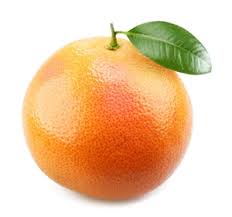 Atherosclerosis: Pectin in this fruit has been found to be effective in reducing the accumulation of arterial deposits, and the vitamin C helps to strengthen and maintain the elasticity of arteries.
Atherosclerosis: Pectin in this fruit has been found to be effective in reducing the accumulation of arterial deposits, and the vitamin C helps to strengthen and maintain the elasticity of arteries.
Breast cancer: In another study, the bioflavonoids found in grapefruit was discovered to even halt cancer cells from spreading in breast cancer patients, by ridding the body of excess estrogen.
Common cold: A common cold is usually your body telling you that you are overworked. A regular drink of grapefruit during a stressful period gives your immune system the boost needed to prevent it coming on.
Cholesterol: A certain compound found in grapefruit helps reduce the excessive production of cholesterol from the liver.
Diabetes: A diabetic can safely eat a grapefruit. In fact, more consumption of this fruit will help reduce the starches and sweets in the system. If you have a tendency towards diabetes, consume more grapefruit juice to prevent it.
Digestive disorder: This juice helps to promote digestion by increasing the flow of gastric juices. Eat the fruit together with its albedo and pith for their extra fiber that aids bowel movements.
Fatigue: At the end of a long and tiring day, drink a glass of grapefruit juice with lemon juice in equal parts with a little honey, to dispel all fatigue and tiredness.
Fever: Besides drinking plenty of fluids, also drink grapefruit juice to reduce fever.
Insomnia: A drink of grapefruit juice before bedtime, helps to promote sleep and alleviates insomnia.
Pregnant woman: The bioflavonoids and vitamin C help to reduce water retention and swelling of the legs during pregnancy.
Sore throat: Drinking a freshly-squeezed grapefruit juice helps relieve sore throats and soothes coughs.
Stomach and pancreatic cancer: The anti-cancer agents in grapefruit (especially in the albedo) are particularly protective against these cancers in the digestive system.
Weight-loss: This fruit has a fat-burning enzyme and can help to absorb and reduce the starch and sugar in the body. It is widely consumed by people who are trying to lose weight. If you don’t fall under the category of people mentioned below (look at “Caution” colum), then take a glass of grapefruit juice twice a day and eat normally.
CARROT
An overwhelming body of evidence exists suggesting that increased intake of antioxidant-rich fruits and vegetables reduce cancer and cardiovascular disease risks, carrots included.
Cancer: A variety of dietary carotenoids have been shown to have anti-cancer effects due to their antioxidant power in reducing free radicals in the body.
Lung Cancer: One study found that current smokers who did not consume carrots had three times the risk of developing lung cancer compared with those who ate carrots more than once a week.2
Colorectal Cancer: Beta-carotene consumption has been shown to have an inverse association with the development of colon cancer in the Japanese population.3
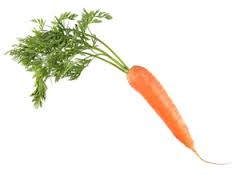 Leukemia: Carrot juice extract was shown to kill leukemia cells and inhibit their progression in a 2011 study.4
Leukemia: Carrot juice extract was shown to kill leukemia cells and inhibit their progression in a 2011 study.4
Prostate Cancer: Among younger men, diets rich in beta-carotene may play a protective role against prostate cancer, according to a study conducted by the Harvard School of Public Health's Department of Nutrition.5
Vision: According to Duke ophthalmologist Jill Koury, MD, vitamin A deficiency causes the outer segments of the eye's photoreceptors to deteriorate, damaging normal vision. Correcting vitamin A deficiencies with foods high in beta-carotene will restore vision.6
Studies have shown that it is unlikely that most people will experience any significant positive changes in their vision from eating carrots unless they have an existing vitamin A deficiency, which is common in developing countries.
So where did all the hype surrounding carrots and vision come from? During World War II, the British Royal Air Force started an advertising campaign claiming that the secret to their fighter pilots clear, sharp vision was carrots. Realistically, the fighter pilot's accuracy was due to a new radar system the British wanted to keep secret from the Germans, but the rumor spread and remains popular today.
Other possible benefits: The antioxidants and phytochemicals in carrots may also help with blood sugar regulation, delay the effects of aging, and improve immune function.
FIG
• Prevent cancer
Coumarin content of the figs, may also reduce the risk of Prostate Cancer. Eating figs regularly can help reduce the risk of breast cancer and colon cancer.
• Reduce cholesterol
The soluble fiber found in figs called Pectin helps in reducing blood cholesterol.
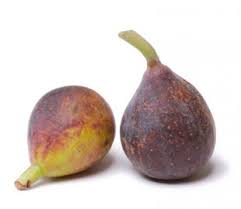 • Prevent high blood pressure and heart attack
• Prevent high blood pressure and heart attack
The content of Potassium, Omega 3 and Omega 6 on fig fruit helps to maintain blood pressure and coronary heart attacks.
• Help cure diabetes
Figs leaves have healing properties. Decoction of fig leaves can help patients with diabetes reduces the amount of insulin intake.
• Consume figs can reduce fatigue, improve brain memory and prevent anemia.
• Because laxative effect, consume the fruit is very helpful for treating chronic constipation.
• Daily consumption of figs is an effective drug for the treatment of hemorrhoids cure.
• When applied to the skin, baked figs can cure inflammations like abscesses and ulcers.
• Due to its high water content, mashed figs acts as an excellent skin cleanser and helps in preventing and curing acne.
• Figs are rich in calcium and calcium is an excellent alternative for the therapeutic treatment of people who are allergic to dairy products.
• Figs are rich in natural Benzaldehid as Phenol and Anti-Tumor Agent and Micro-organisms can kill pathogens, fungus and virus in the human body.
• Fig fruit is rich in dietary fiber, which makes them very effective for weight loss program (Obesity).
• Content of Calcium and Potassium in figs prevent bone thinning (osteoporosis), and helps to increase bone density.
• Content of Tryptophan in figs, induces good sleep and helps get rid of sleep disorders such as insomnia.
WATERMELON
• Prevent cancer
Coumarin content of the figs, may also reduce the risk of Prostate Cancer. Eating figs regularly can help reduce the risk of breast cancer and colon cancer.
• Reduce cholesterol
The soluble fiber found in figs called Pectin helps in reducing blood cholesterol.
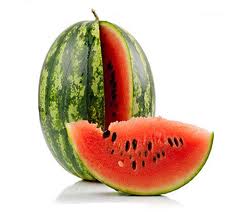 • Prevent high blood pressure and heart attack
• Prevent high blood pressure and heart attack
The content of Potassium, Omega 3 and Omega 6 on fig fruit helps to maintain blood pressure and coronary heart attacks.
• Help cure diabetes
Figs leaves have healing properties. Decoction of fig leaves can help patients with diabetes reduces the amount of insulin intake.
• Consume figs can reduce fatigue, improve brain memory and prevent anemia.
• Because laxative effect, consume the fruit is very helpful for treating chronic constipation.
• Daily consumption of figs is an effective drug for the treatment of hemorrhoids cure.
• When applied to the skin, baked figs can cure inflammations like abscesses and ulcers.
• Due to its high water content, mashed figs acts as an excellent skin cleanser and helps in preventing and curing acne.
• Figs are rich in calcium and calcium is an excellent alternative for the therapeutic treatment of people who are allergic to dairy products.
• Figs are rich in natural Benzaldehid as Phenol and Anti-Tumor Agent and Micro-organisms can kill pathogens, fungus and virus in the human body.
• Fig fruit is rich in dietary fiber, which makes them very effective for weight loss program (Obesity).
• Content of Calcium and Potassium in figs prevent bone thinning (osteoporosis), and helps to increase bone density.
• Content of Tryptophan in figs, induces good sleep and helps get rid of sleep disorders such as insomnia.
HONEYMELON
Cholesterol: This fruit contains a high amount of soluble fiber that help reduce the level of cholesterol in the body.
Bone and Teeth Strength: Honeydew is rich in calcium, which is beneficial for bone and teeth strength and development.
Hydration: Honeydew contains a substantial amount of useful minerals, such as potassium, that aid in sustaining water level in the body. It is made up of approximately 90 percent water, therefore, is a good source for quenching thirst and hydration at cellular level.
Digestion Aid: Its insoluble fiber is essential for digestion. Eating honeymelon or drinking of its juices helps relieve constipation and other digestive issues.
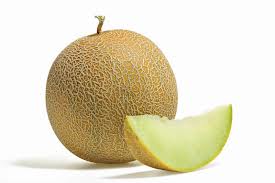 Hypertension: Honeydew is great for individuals suffering from hypertension as this fruit is rich in potassium, an essential mineral that counteracts the blood-elevation effects of table salt.
Hypertension: Honeydew is great for individuals suffering from hypertension as this fruit is rich in potassium, an essential mineral that counteracts the blood-elevation effects of table salt.
Immunity: Studies show that a single serving of honeymelon contains 34 percent of the daily needed dosage of vitamin C that is essential for building immunity system.
Pregnancy: Pregnant women need more nutrients intake during pregnancy for fetus growth. The important nutrients that pregnant women need are found in honeydew melons; therefore, it is convenient for mothers-to-be to add this fruit in their diet.
Skin Health: Besides strengthening the body’s immune system, the vitamin C content of honeymelon also helps in improving the levels of collagen in the body. Collagen is a kind of protein that plays a vital role in strengthening the blood vessels and skin tissues. Lack of collagen can cause wrinkles and sagging skin.
Vision Health: Honeydew is packed with lutein and zeaxanthin, two very important phytonutrients for eye health. Having enough amount of this compound will help reduce risk for cataracts and other eye conditions.
Water Retention: Like watermelon, the superb hydration quality of honeymelon make the juice an important help for reducing water retention and edema.
Weight Loss: Individuals who want to lose weight will find honeymelon juice a great help. Its high water content makes it excellent as a diuretic drink that helps cleanse the kidneys and move bowels for a healthy colon which helps weight loss.
APRICOT
Anemia: The high content of iron in apricot makes it an excellent food for anemia sufferers. The small but essential amount of copper in the fruit makes the iron available to the body. Liberal consumption of apricot can increase the production of hemoglobin in the body. This is ideal for women after their menstrual cycle, especially those with heavy flow.
 Constipation: The cellulose and pectin content in apricot is a gentle laxative and are effective in the treatment of constipation. The insoluble cellulose acts as a roughage which helps the bowel movement. The pectin absorbs and retains water, thereby increasing bulk to stools, aiding in smooth bowel movement.
Constipation: The cellulose and pectin content in apricot is a gentle laxative and are effective in the treatment of constipation. The insoluble cellulose acts as a roughage which helps the bowel movement. The pectin absorbs and retains water, thereby increasing bulk to stools, aiding in smooth bowel movement.
Digestion: Take an apricot before meal to aid digestion, as it has an alkaline reaction in the digestive system.
Eyesight/Vision: The high amount of vitamin A (especially when dried) is essential to maintain or improve eyesight. Insufficiency of this vitamin can cause night blindness and impair sight.
Fever: Blend some honey and apricots with some mineral water and drink to cool down fevers. It quenches the thirst and effectively eliminates the waste products from the body.
Skin Problem: Juice fresh apricot leaves and apply on scabies, eczema, sun-burn or skin itchiness, for that cool, soothing feeling.
 CHERRY
CHERRY
• Cherries, known as a “super-fruit”, are packed with antioxidants called anthocyanins which aid in the reduction of heart disease and cancer.
• Cherries are one of the few food sources that contain melatonin, an antioxidant that helps regulate heart rhythms and the body’s sleep cycles.
• Cherries are an excellent source of beta carotene (vitamin A). In fact they contain 19 times more beta carotene than blueberries and strawberries.
• Cherries are rich in vitamins C, E, potassium, magnesium, iron, folate and fiber.
• Cherries are referred to as “brain food”, aiding in brain health and in the prevention of memory loss.
• Because cherries contain anthocyanins, they can reduce inflammation and symptoms of arthritis and gout.
• Eating cherries reduces the risk of diabetes.
• Cherries are a good source of fiber which is important for digestive health.
• Cherries are a great snack or dessert choice important for weight-maintenance.
• Because of their powerful anti-inflammatory benefits, cherries are said to reduce pain and joint soreness for runners and athletes after workouts.
KIWIFRUIT
Anemia: The anti-anemic effect of kiwifruit results from its high content in iron, copper and vitamin C. Iron and copper are essential for the synthesis of hemoglobin, the protein found in red blood cells that carries oxygen throughout the body. The high content of vitamin C enhances iron absorption from the small intestine into the bloodstream.
Anti-oxidant effect: Several nutrients contained in kiwifruit, including iron, copper and vitamins C and E, have antioxidant properties and are responsible for neutralizing free radicals which can cause premature aging, inflammation, as well as many degenerative diseases.
Connective tissues health: Vitamin C is essential for the synthesis of collagen, thus its high content in kiwifruit is highly beneficial to connective tissues health, especially for bone, tooth and gum health. Not only kiwifruit can help maintain the integrity of bone tissue by enhancing the synthesis of collagen, but it also promotes its mineralization (thereby preventing osteoporosis) due to its content in calcium and phosphorous.
Constipation: Due to its relatively high content in fiber, kiwifruit has natural laxative properties that help cleanse the digestive tract and prevent or remedy digestive disorders.
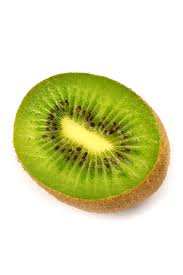 Damaged sperm, repair: The rich vitamin C, an anti-oxidant, protects sperms from genetic damage that may cause a birth defect. When a couple are trying for a baby, both should prepare their overall health by increasing on this rich vitamin to increase their chances of conception and later a healthy baby.
Damaged sperm, repair: The rich vitamin C, an anti-oxidant, protects sperms from genetic damage that may cause a birth defect. When a couple are trying for a baby, both should prepare their overall health by increasing on this rich vitamin to increase their chances of conception and later a healthy baby.
Heart health: Due to its high potassium and low sodium content, kiwifruit helps maintain blood pressure within normal ranges and prevent hypertension. In addition, potassium plays a critical role in regulating and improving heart function, while vitamin C helps lower blood cholesterol, thereby preventing atherosclerosis and related heart disease.
Immune system: Kiwifruit is highly effective in enhancing and modulating the immune system function, thereby contributing to combat and prevent cold and flu, as well as other types of infections and inflammation.
Muscle cramps: The richness in minerals such as magnesium and potassium, help alleviate muscle fatigue, prevent muscle cramps and improve muscle strength.
Mental fatigue: The high magnesium content in kiwifruit enhances energy production within the brain, thereby increasing concentration and relieving mental fatigue.
Pregnancy: Drinking kiwifruit juice during pregnancy can help prevent nightly muscle cramps, improve the micro-circulation in legs (thereby preventing varicose veins and relieving edema in legs), prevent calcium deficiencies and constipation. In addition, the high content in folate of kiwifruit juice is helpful in preventing the occurrence of neural defects in babies.
Stomach ulcer: Consuming vitamin C rich foods helps to lower the incidence of peptic ulcers and in turn, reduce the risk of stomach cancer.
LEMON
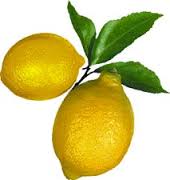 Asthma: Take a tablespoon of lemon juice at least one hour before each meal to relieve asthma.
Asthma: Take a tablespoon of lemon juice at least one hour before each meal to relieve asthma.
Burning soles/feet: Rub a sliced lemon over the burning sole/foot/heel to relieve from pain and for toxin elimination through the pores of the feet.
Cholera: The potent anti-viral properties in lime/lemon can killcholera bacilli within a very short period of time. Drink one part juice and one part water regularly, especially during an epidemic.
Cold: The anti-viral properties in lime/lemon fight infections and halt the progress of a cold. Take the juice of two lemons in half a liter of hot water and add raw honey to taste. Sip it slowly before bedtime.
Constipation: Drink a glass of warm water every morning with some lime/lemon juice with raw honey. Stir in a pinch of cinnamon powder. This will help your body to detoxify and relieve constipation.
Digestion: Lime/lemon juice have amazing digestive qualities that are very similar to our digestive enzymes. Thus it is effectively helps with digestion and relieve bloating and belching.
Feet, tired: After a long day on your feet, soak your feet in very warm water containing lime/lemon juice to enjoy the cooling, astringent feeling. This will also help promote deep sleep due to the relaxing action on the foot nerves.
Gums, swollen: Drink a glass of diluted fresh lime juice with a pinch of sea salt to relieve the pain of swollen gums. Use the albedo (the white matter under the peel) from the squeezed lime and rub on the gums.
Heartburn: Add two teaspoon of concentrated lime/lemon juice into a glass of warm water and drink to relieve heartburn.
Inflammatory disorders: Even though lime/lemon juice are sour and taste acidic, it is actually very alkalinizing in the body and is highly effective in the treatment of inflammatory disorders like rheumatism, arthritis, sciatica, etc. It also prevents the deposit of uric acid in the tissues, thus reducing the risks of gout.
Skin, dry: Rub the peel of a lemon on dry or scaly skin to restore softness and add moisture to the skin.
Sore throat: Mix one part lemon juice with one part water. Gargle frequently and feel its soothing effect on the throat. You may also add in a pinch of sea salt for added effect.
 BANANA
BANANA
Anemia: Bananas provide iron which is essential for the production of hemoglobin, myoglobin and many enzymes essential for the formation of red blood cells.
Blood Pressure: A recent study has revealed that “two bananas a day will keep blood pressure at bay”. This is definitely a cheaper and definitely a much healthier alternative to expensive drugs.
Brain Food: Research has shown that students eating banana at breakfast, break and lunch are more alert in the class. The potassium in banana boost their brain power, assisting much in their learning ability.
Constipation: The pectin content in bananas is water-absorbent, creating the necessary bulk in easing constipation. Definitely a healthier choice over laxatives.
Diarrhea: Eat a ripe banana. It normalizes colonic functions in the large intestine by absorbing large amounts of water and helps regulate proper bowel movements.
Energy: The carbohydrates content in bananas is used as fuel for your muscles. Eating bananas is a good energy booster for athletes.
Heartburn: Bananas have a natural antacid effect in the body, so if you suffer from heartburn, try eating a banana to counteract the stomach acidity for a soothing relief.
Morning Sickness: Snacking on bananas frequently helps to keep your blood sugar levels up, thus preventing the nauseous feeling.
Mosquito bites: When stung by a mosquito, try rubbing the affected area with the inside of a banana skin. It is amazingly effective at reducing swelling and itchiness.
Muscle Cramps: A deficiency in potassium can cause muscular cramps and greater susceptibility to injury. Make bananas a regular part of your diet if you exercise a lot, both for an energy boost and to prevent cramps and injuries.
Quit Smoking: The vitamins B6 and B12, and the potassium-magnesium combination found in bananas has a profound effect in helping the body recover from nicotine withdrawal of one who is trying to quit smoking.
Stomach Ulcer: This is the only fruit that a chronic ulcer sufferer can eat without causing distress to the stomach. It neutralizes the over-acidity of the gastric juices and reduces the irritation of the ulcer by coating the stomach lining. Ripe bananas relieve acute symptoms and promote the healing process.
Stress: When we are stressed, our metabolic rate rises, causing the body potassium levels to be reduced. By snacking on the potassium-packed banana, it helps to rebalance the vital mineral, and helps normalize the heartbeat. This in turn sends oxygen to the brain and regulates the body’s water balance.
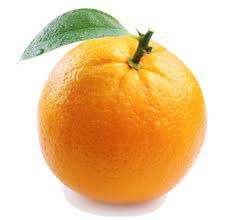 ORANGE
ORANGE
Arteriosclerosis: Regularly consuming vitamin C retards the development of hardening of the arteries.
Cancer prevention: A compound in oranges called liminoid, has been found to help fight cancers of the mouth, skin, lung, breast, stomach and colon. The high vitamin C content also acts as a good anti-oxidant that protects cells from damages by free radicals.
Cholesterol: The alkaloid synephrine found under the orange peel can reduce the liver’s production of cholesterol. Whereas the anti-oxidant fights oxidative stress that is the main culprit in oxidizing the LDLs in our blood.
Constipation: Even though the orange “tastes acidic”, it actually has an alkaline effect in the digestive system and helps stimulate the digestive juices, relieving constipation.
Damaged sperm, repair: An orange a day is sufficient for a man to keep his sperm healthy. Vitamin C, an anti-oxidant, protects sperm from genetic damage that may cause a birth defect.
Heart disease: A high intake of flavonoids and vitamin C has been known to halve the risk of heart diseases.
High blood pressure: Studies have shown that a flavonoid called hesperidin in oranges can lower high blood pressure.
Immune system: The strong content of vitamin C stimulates white cells to fight infection, naturally building a good immune system.
Kidney stones, prevent: Drinking orange juice daily can significantly drop the risk of formation of calcium oxalate stones in the kidney.
Skin: The anti-oxidant in orange help protect the skin from free radical damage known to cause signs of aging.
Stomach ulcer: Consuming vitamin C rich foods helps to lower the incidence of peptic ulcers and in turn, reduce the risk of stomach cancer.
Viral infections, protection against: The abundance of polyphenols have been shown to provide protection against viral infections.
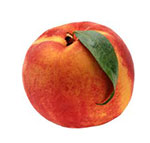 PEACH
PEACH
• Peaches are the perfect snack food for losing weight. A peach makes you feel full and keeps you from overeating. The bonus: one peach only contains about 35-50 calories and no fat!
• Fight obesity-related diabetes and cardiovascular disease. Peaches are rich in phytochemicals called phenols that act as antioxidants.
• Keep the skin healthy. Vitamin A and C make peaches a great natural moisturizer; they’re often used in cosmetics. These vitamins can help regenerate skin tissue.
• Reduce hair loss with its positive effect on the scalp.
• A healthy stress-reliever that helps reduce anxiety. Peaches are often referred to as the ‘Fruit of Calmness’ in Hungary.
• Helps prevent cancer with selenium — a mineral with antioxidant properties that may help protect cells from damage.
• Peaches can help remove worms from the intestines.
• Have a diuretic effect which helps cleanse your kidneys and bladder.
• Peaches can calm an upset stomach.
• Compounds in stone fruits could help with “metabolic syndrome,” according to Dr. Luis Cisneros-Zevallos, AgriLife Research food scientist involved in a study at the American Chemical Society in Philadelphia. Cisneros-Zevallos says, “Our work indicates that phenolic compounds present in these fruits have anti-obesity, anti-inflammatory and anti-diabetic properties in different cell lines and may also reduce the oxidation of bad LDL cholesterol which is associated with cardiovascular disease.”
• Those suffering from gout and rheumatism are recommended by dieticians to eat peaches because peaches tend to have a diuretic and a light laxative effect.
• Peaches are thought to be an aphrodisiac.
• Peach flowers have sedative properties . A remedy for restlessness includes boiling peach flowers in water along with some honey.
• Inhibit tumour growth activity. Peaches have excellent antimicrobial and antioxidant activity according to research.
• Chronic bronchitis, coughs and gastritis are relieved with the medicinal tea of the leaves and bark of peach trees.
• Peach tea is used as a kidney cleanser in China.
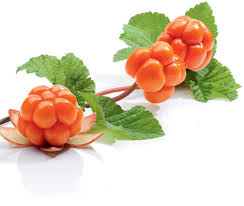 BLACKBERRY
BLACKBERRY
• Much like spinach, raisins, apples, plums and grapes, blackberries are rich in bioflavonoids and Vitamin C, but other nutritional benefits include a very low sodium count and having only 62 calories to a cup.
• The dark blue colour ensures blackberries have one of the highest antioxidant levels of all fruits. Antioxidants, well-known for lowering the risk of a number of cancers,are a huge bonus, but be aware the berries are best consumed in their natural state to get the full benefits.
• The berries are known by a variety of names, which include brambleberries, bramble, dewberry, thimbleberry and lawers.
• Consumption of blackberries can help to promote the healthy tightening of tissue,which is a great non-surgical procedure to make skin look younger. Prolonged consumption also helps keeps your brain alert, thereby maintaining clarity of thought and good memory.
• The high tannin content of blackberries provides a number of benefits to reduce intestinal inflammation, alleviate hemorrhoids and soothe the effects of diarrhea. It is important to incorporate berries in your diet in a variety of ways. Have them as a snack or in your cereal or even as a smoothie.
• Traditionally, the leaves and barks of the plant have also been consumed. The leaves of blackberries have been used to treat mild inflammation of the gums and sometimes even sore throats.
• The astringent tannins are effective in oral hygiene when used as a gargle or mouthwash.
• The leaves can also be used in a refreshing cup of tea or enhanced as a therapeutic drink. Not everyone will like the flavour, so to mask the bitter taste, honey or another form of sweetener may be added.
• The healthy dose of Vitamin K aids in muscle relaxing, so some women use the berries to alleviate labour pains. As part of a regular diet, the juice can also be used to regulate menstruation as it is very effective in helping blood to clot.
• And finally, if you have noticed that your blackberry plant has turned orange, destroy it. This is a serious fungal disease that cannot be cured.
In Canada, blackberries are seasonal fruits and the availability of a fresh batch depends on whether you live in the North or the South. But if it's the touchscreen BlackBerry Z10 you have a craving for, that one is apparently available on Feb. 5.
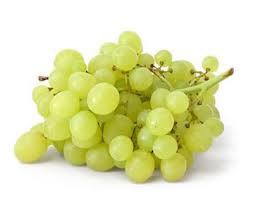 GRAPE
GRAPE
Anti-coagulant: The juice from this tiny fruit can help prevent blood clotting and in the process, help improve blood circulation which would generally improve on overall health.
Anti-inflammation: The anti-inflammatory agents in grapes greatly help reduce the risks of inflammatory problems like rheumatism, gout and asthma.
Atherosclerosis: Resveratrol in grapes is a good scrubber of arterial deposits, thus it effectively helps reduce the risk, or even reverse atherosclerosis.
Bladder: Highly cleansing to the bladder, cleaning out the stones and improving urination, improves bile flow and elimination of waste materials.
Cancer: The rich and high content of anti-oxidants in cancer are superb for the prevention of cancer.
Constipation: Grape juice is a mild laxative and helps clear up the bowels. Take about 200 ml twice daily for chronic constipation.
Eyesight/vision: The flavonol compounds in grape seeds are effective for the treatment of night blindness, retinal disorders and vision improvement.
Fever: Drink grape juice consistently to reduce fever. It would also help relieve fatigue and provide energy to the body.
Heart disease: Grapes are beneficial in toning up the heart, reduce heart pains, and can normalize heart palpitations. To enjoy the benefits, go on a grape diet for a few days.
Indigestion: A gentle and natural home remedy for indigestion.
Mouth and throat infection: Drink juice of unripe grapes to help clear infections in the mouth and throat.
Migraine: Certain compounds in grapes make this miracle juice powerfully effective in relieving headaches and migraine.
Kidney: Grape juice is diuretic and is excellent for cleaning out the kidney and may help remedy kidney stones.
Liver: The abundance of minerals in grapes stimulate the cleansing activity in liver, helps to detoxify.
Skin: The highly cleansing properties of grape juice and the high vitamin C content is very beneficial for the skin and helps reduce acne.
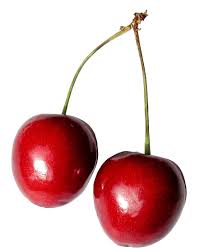 SOUR CHERRY
SOUR CHERRY
• Sour cherry nourishes and protects the brain
• Sour cherry reduces the risk of diabetes
• Sour cherry helps with kidney pains
• Sour cherry improves the digestion
• Sour cherry is great for weight loss
• Sour cherry protects the heart
• Sour cherry protects the genitourinary tract
CRANBERRY
Anti-aging: Several aging-related conditions, such as degenerative disorders of many organs and tissues and certain types of cancer, are associated with cellular damage from free-radicals. Due to their high content in anti-oxidants, cranberries can help prevent and fight such free radical-induced damages and hence protect the body against the risk of developing aging-related diseases and conditions.
Anemia: Cranberries are an excellent source of vitamin C (which enhances the intestinal absorption of iron) and also contain moderate amounts of iron and folate, which are essential for the synthesis of hemoglobin and the maturation of red cells. This is why cranberry juice can be a great aid in the prevention and treatment of many different types of anemia.
Atherosclerosis and cardiovascular disease: The anti-oxidants found in cranberry juice can help prevent the oxidation of LDL-cholesterol, which is one of the first step involved in the formation of atherosclerotic plaques. It is well known that atherosclerosis is one of the leading cause of cardiovascular disease, stroke and heart attack. Therefore cranberry juice can be used as an effective preventive remedy against these conditions.
Diarrhea: Cranberries can help control and combat different types of diarrhea, especially those caused by alteration in the intestinal flora which allows E. coli bacteria to grow without control and release toxins responsible for water accumulation in the intestine and hence diarrhea. The anti-diarrheal effect of cranberry juice is due to its antiseptic properties, as well as to its content in tannins and anthocyanins which prevent the bacteria from adhering to the intestinal walls and then grow and proliferate.
Digestive disorders: Due to their content in organic acids, cranberry juice can help stimulate the secretion of saliva and gastric juice, which contain the enzymes responsible for digestion of starch and proteins.
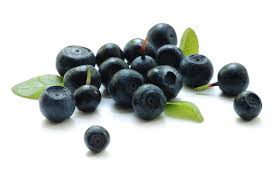 Eyesight/vision: Although cranberries are less effective than blueberries in preventing and treating eye conditions, they are also helpful. In addition, anthocyanins act on eye’s capillaries by improving the blood flow to the retina, thereby helping to improve sight and treat certain types of retinal degeneration.
Eyesight/vision: Although cranberries are less effective than blueberries in preventing and treating eye conditions, they are also helpful. In addition, anthocyanins act on eye’s capillaries by improving the blood flow to the retina, thereby helping to improve sight and treat certain types of retinal degeneration.
Kidney stones formation, prevent: Cranberry juice helps excrete oxalic acid and uric acid from the kidneys. It contains quinic acid that is useful to prevent kidney stones formation in kidneys.
Probiotic: Cranberries is an anti-biotic and also a probiotic. It has the ability to kill certain viruses, bad bacteria and pathogens; while acting as a natural probiotic to help breed the good bacteria. This promotes a healthy intestinal flora.
Skin conditions and disorders: The topical application of certain cranberry formulations in form of lotion or cream can help prevent and treat skin irritations, eczema, couperose, as well as many other skin conditions associated with weak capillaries.
Venous disorders: It has been shown that anthocyanins found in blueberries and, at a lesser extent in cranberries, help protect and strengthen the walls of veins and capillaries, thereby improving the symptoms of varicose veins and swollen legs.
Urinary tract infections: Fresh cranberry juice is particularly helpful to remedy and prevent urinary tract infections, especially cystitis (bladder infection) from E. coli by “stripping” off the bacteria from adhering to the walls of the urinary tract and then proliferate.

